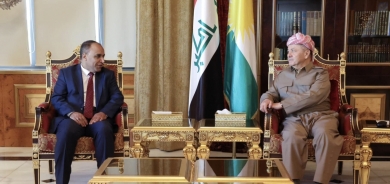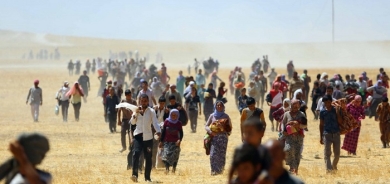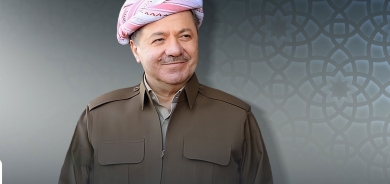The Future

Author: Davan Yahya Khalil
What does the future hold for Kurdistan? It is a difficult question to answer. The past does not hold a clear blueprint for the future, but rather a collection of possible pathways. Which ones the region walks down will come from the choices and actions of not just a few, but millions of people. Trying to predict the future is necessarily a game of guesswork and opinion, especially in a region where so few things have been predictable in the past. Even so, I believe that there are general trends that we can consider, along with emerging forces around Kurdistan that suggest at least some of what might happen in the years to come.
Independence
The big question for many people in Kurdistan is whether the future is likely to contain full independence for the region, and if it comes what form that independence will take. Currently, it exists as a semi-autonomous region within a federal Iraq, so does the potential exist for that to change?
On one level, it could be quite difficult. Kurdistan’s current constitution identifies it as a federal region, while Iraq’s does not allow a mechanism for areas to leave its political orbit. It allows only for the creation of what already exists, which is a region with its own government, but still at least nominally under the rule of Baghdad. On a legal level, full secession would require a change in the constitution, and that seems unlikely to come about.
It is possible, of course, that Kurdistan might ignore the Iraqi constitution and simply proclaim independence. To some extent, it seems like the most likely approach to independence, because it seems unlikely that the Baghdad government would ever turn around, grant independence to the region and simply wish Kurdistan good luck. Yet it is a future that potentially creates problems.
For one thing, if history has shown us anything, it is that the Baghdad government is unlikely to let go of the resources and territory that Kurdistan represents willingly. While it is possible that negotiation might prevent outright war, the history of violence in the past under a variety of rulers makes it unlikely. The first reaction of almost any government on being told that Kurdistan is trying to declare independence seems to have been to send in troops.
It is even an understandable reaction, on some levels. Governments cannot generally allow easy secession within their countries, because it is politically damaging for them as the people who “lost” a region, because of the loss of resources, and because of the risk of further fragmentation it creates. Lose one territory, and a government creates the conditions to potentially lose more. Even the Kurdish Regional Government understands that desire on the part of governments to maintain their territory. The constitution of Kurdistan, after all, contains provisions forbidding the further breaking away of regions or cities within it.
So there is a possibility that a declaration of independence might lead to renewed violence around the region. Indeed, previous moves in that direction have brought militarisation along the Iraq-Kurdistan border in the past. Yet there are potential differences between such violence and that which has gone on in the past. Previously, Kurdistan had to rely almost entirely on small peshmerga forces. The stories of Mullah Mustafa’s rebellions were essentially those of small groups of lightly armed men fighting guerrilla wars, with only occasional additions of artillery or heavy armour. Today, Kurdistan’s defence force is a well-armed and well equipped regular force, able to hold its own in a conflict rather than merely trying to delay the inevitable long enough to escape.
More than that, there is the possibility of wider fragmentation to consider. Part of the reason Iraq is so eager to hold on to Kurdistan is the worry that if it were to leave, other regions would also seek independence. At the time of writing, the west of Iraq looks like it might be making moves towards a potential secession. Such fragmentation might potentially make it easier for Kurdistan to leave, by forcing the Baghdad government to make choices about what territory it could realistically hold onto, or by forcing it to try to act in multiple directions at once. As we have seen several times in Kurdistan’s modern history, the times when it has enjoyed the greatest measure of freedom have tended to be those when the nations that claimed it were distracted by other events.
Would that work in the longer term? Ultimately, as Mullah Mustafa’s life has shown us, attempts at Kurdish independence only tend to work to the extent that they are supported by outside members of the international community. From the failure to achieve independence following the First World War when the Great Powers wanted to take the territory, to the short lived Republic of Mahabad failing when the Soviet Union was forced to withdraw its support, international politics often count for more than the local situation when it comes to the survival of a newly declared country.
In the modern context it comes down to a combination of long term support, strategic usefulness, and formal recognition by the UN. That recognition is arguably the most important aspect. With it, what was a breakaway region becomes legally a new country, as with recent examples like South Sudan. That legal status does not make them safe, but it creates a measure of protection by allowing them to request outside aid and legally preventing other nations from attacking them.
Would Kurdistan be likely to get such recognition? To some extent, its time as an autonomous region makes it more likely, because it demonstrates to those nations with vested interests in the region’s oil reserves that the region is capable of functioning stably and relatively independently. It also seems likely that Kurdistan’s attempts to build up good international relations in the time since its creation as an autonomous region will have helped to build some of the support it needs to gain that recognition. Even amongst those who would probably prefer to see Iraq remain in its present form politically, there have been those who have suggested that a three state solution is probably the likeliest outcome.
Yet there are also voices against independence in the international community. The nations around Kurdistan are probably worried about the possibility, as they have traditionally tried to avoid it happening. Major international powers, such as Russia, China and the USA, may be concerned over whether it is a move that will add to the general stability of the region or not. Although it seems hard to imagine how a stable, functioning democracy in the middle of the region could do anything except improve its overall safety.
There are probably two or three scenarios that worry the international community. One possibility is that it might spark further fragmentation, not just within Iraq, but within Kurdistan itself. It is, after all, a region that has already experienced one civil war, and which has significant political divisions between its cities. Even its constitution feels that it needs to explicitly forbid the breaking away of areas within the region. Currently, the desire for independence from Iraq serves as something of a uniting force for Kurdistan, but has there also being sufficient work done to craft Kurdistan’s identity and prevent further fragmentation in the future. I would argue that it has, and that, as we have seen, Mullah Mustafa was crucial in crafting Kurdistan’s image of itself.
The second worry is to do with the possibilities for further violence that secession might create. International politicians undoubtedly want things to move towards stability in the Middle East, and there are two potential scenarios around any potential independence for Kurdistan that must worry them. The first is the possibility of Kurdistan coming under attack by its Arab neighbours, either in an attempt by Baghdad to take it back or an attempt by another country to seize its resources while it is finding its feet. In answer to that, I can only say that Kurdistan should not be made responsible for the potential actions of others, and that it at least has the resources and means to defend itself if necessary.
The other scenario that worries some commentators is the idea of an expansionist Kurdistan, seeking to take territory from the surrounding nations on the basis either that the population is mostly Kurdish or that the lands are a part of the larger area of Kurdistan. This fear is undoubtedly based on the experience of nationalist movements in other countries, as well as some of the rhetoric from Kurdistan, which has done things such as referring to the largely Kurdish areas of Syria as Western Kurdistan.
There is no simple answer to this, because it would be a lie to suggest that Kurdistan would ignore these areas if they wished to be a part of it. All peoples have the right to self-determination, after all. But Kurdistan has enough experience of being conquered by others that it would never seek to gain these areas by military force, and in any event, it has no current wish to destabilise its situation by engaging in such often dangerous endeavours. Kurdistan has the revenue to be self-sufficient, and a military just big enough for self-defence rather than aggression. It has no need for the kind of expansionist approach some people fear.
These fears though do not have to come to pass. They are scenarios that could potentially happen in the event of independence, but all that means is that we must be vigilant and take steps to ensure that they do not. They are not in themselves barriers to the independence that I believe Kurdistan is likely to achieve at some point in the near future. Independence remains the goal for much of the region that it was in Mullah Mustafa’s time, and it seems like it is a future that my people will continue to work towards until they achieve it.







